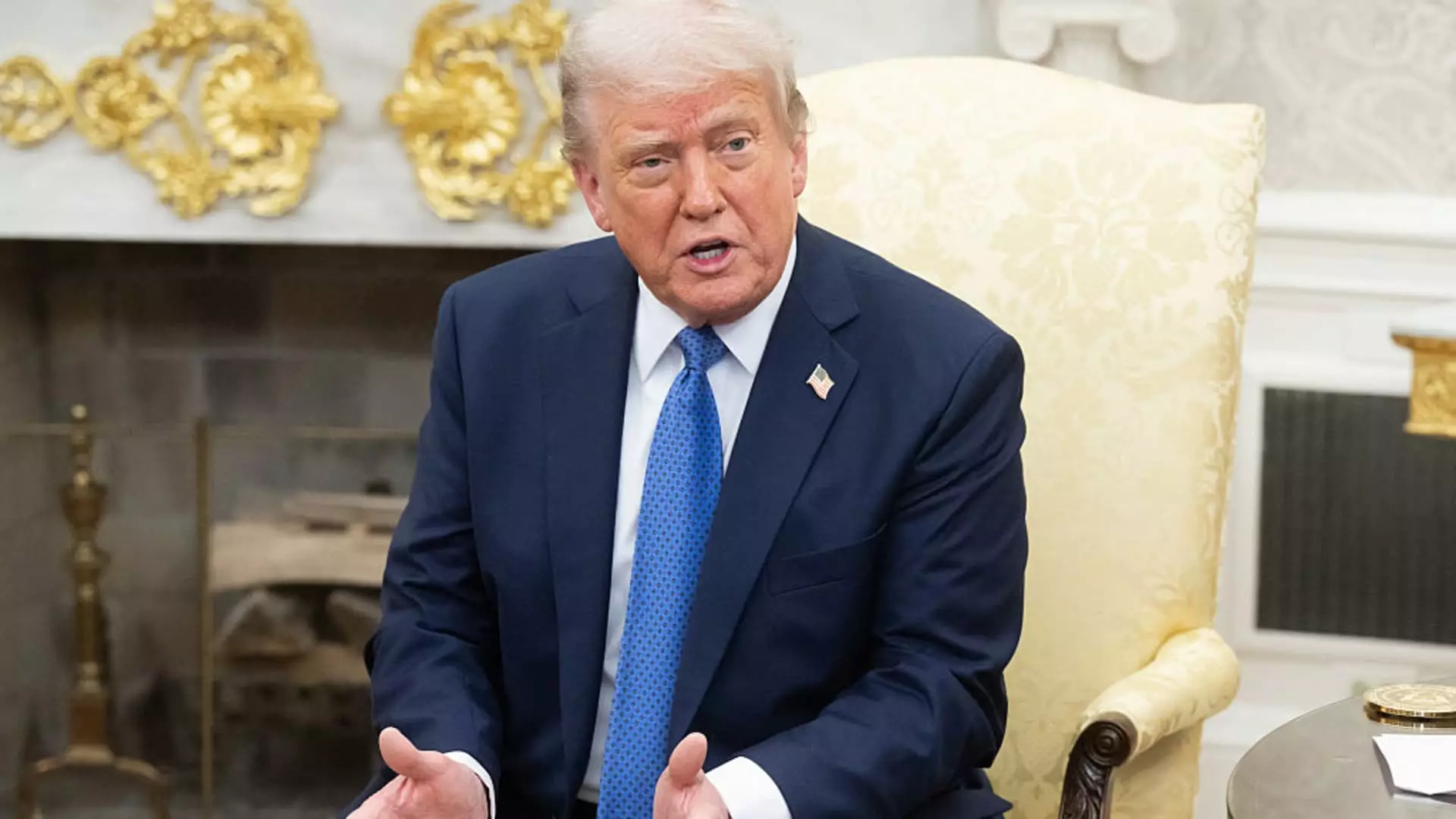Donald Trump’s handling of tariffs and trade relations is nothing short of audacious. In recent discussions regarding his controversial decision to impose broad tariffs against U.S. imports, Trump proposed that his choices were not swayed by the very real reactions occurring within the bond market. While it is commendable for a leader to maintain confidence in their decisions, turning a blind eye to the intricate relationship between economic policy and market reactions can be misleading. President Trump’s justifications reflect a certain brashness, implying a lack of regard for conventional economic principles that typically guide sound decision-making.
A Volatile Market Response
Following Trump’s tariff announcement dubbed “Liberation Day,” a wave of uncertainty rippled through financial markets. The sharp sell-off exemplified the fragility of investor confidence when faced with unpredictable policy shifts. Financial markets, especially the bond market, reacted negatively, showcasing the profound impact of such sweeping tariff decisions. The 10-year Treasury yield spiked dramatically—a response indicative of investors scrambling to assess the potential fallout from these tariffs. Yet Trump insinuates that he remains impervious to market signals, a position that could reverberate unfavorably in the long run.
The Complex Dynamics of Tariffs
The president’s rationale for imposing tariffs based on trade deficits opens a much-debated chapter in economic discourse. The proposition that implementing tariffs will rectify trade imbalances essentializes a viewpoint that fails to account for the multifaceted nature of global trade. While the intention may have been to protect American industry, the risk of exacerbating inflation and upsetting long-standing trade agreements looms large. Trump’s declaration that he views a potential 50% tariff as a “total victory” underscores a disconnect with the accompanying economic realities and potential consequences—not just for international relationships but for the American consumer as well.
Looking Beyond the Numbers
In his Firebrand manner, Trump maintains an apparent confidence in upcoming negotiations, asserting that he has the situation under control. However, real leadership requires not just confidence, but the ability to navigate complex landscapes with an eye on actual economic outcomes instead of mere bravado. The self-proclaimed knowledge of “what we have” seems to deny the empirical evidence that a drastic rise in tariffs may only serve to further intensify existing economic strains.
The Long Game of Negotiation
While Trump’s administration is currently engaged in tariff negotiations, the strategic delay he instituted reveals an underlying anxiety about the consequences awaiting if these negotiations fail. By placing a 90-day hold on reciprocal tariffs, the president is effectively buying time—not exhibiting strength, but highlighting uncertainty. This may not resonate as the strongman move it was intended to be; rather, it may manifest as desperation under the guise of strategized negotiation.
In a rapidly adjusting global economy, decisive leadership must also embody adaptability and a nuanced understanding of market behaviors. The bold moves of the Trump administration offer both challenges and warnings: while power plays in negotiations may yield temporary advantages, they carry long-term repercussions that could shape the economic landscape for years to come.

